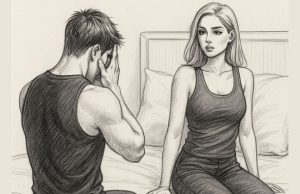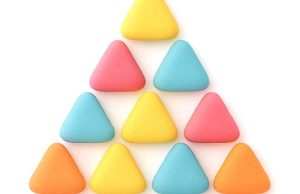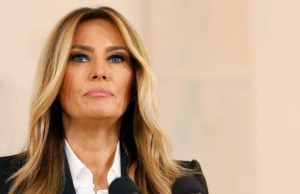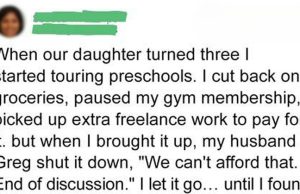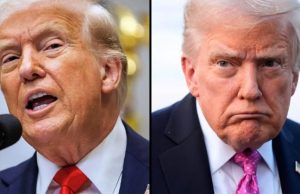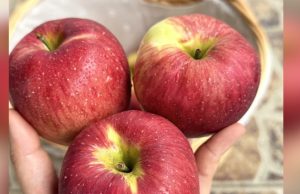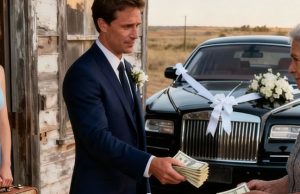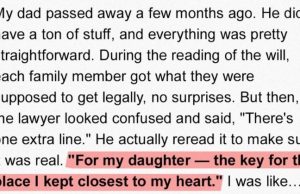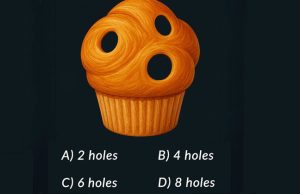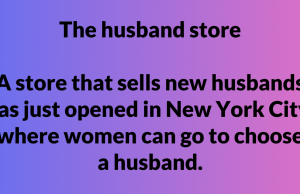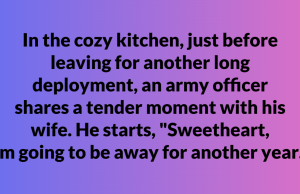“You were just a regret we never planned.”
That’s all my father said before walking away. No raised voice, no dramatic pause—just a cold, detached sentence from the man who had shaped my life for nearly three decades.
My name is Sydney, and until that moment, I thought being invisible to my family was the deepest pain. I was wrong.
Just hours before, my mother had torn my medical file into pieces in the center of a hospital atrium, yelling, “You’re choosing to let your sister die!” Eyes turned. Conversations stopped. I stood frozen, shredded paper drifting to the floor like ash from a fire I never started.
They told everyone this was about love. About family. But it wasn’t. It was power disguised as duty. I wasn’t a daughter—I was an investment. And the day they tried to cash me in was the day I decided to end their control.
The fragments of my file littered the sterile tiles like fallen confetti at a party thrown in someone else’s honor. My mother, Coraline, glared down at me, her breath rapid, her fury volcanic.
“Do you really think you get to act like the victim now?” she hissed, slicing through the silence. “Your sister is dy:ing, Sydney. Dying. And you’re doing nothing.”
I’d heard it all before. It had been drilled into me for years.
Beyond the glass of room 311, my sister Vera reclined in her hospital bed—bald, yes, but still smug. When our eyes met, hers gleamed with a sick confidence: I’m the one that matters. You’re just a tool.
I bent and picked up a scrap of paper. Not to clean up. But because it was evidence. Something real in a lifetime of lies.
“I didn’t raise you to be like this,” Coraline whispered, low and bitter. “We gave you everything.”
I looked up. “You gave me obligations disguised as love.”
Her mouth opened—then nothing. The silence wasn’t peace. Just a vacuum where her anger couldn’t find footing. Then came the screech.
“YOU’RE LETTING HER DI:E!”
It echoed through polished glass and metal. A nurse paused mid-step. A guard glanced over. This wasn’t sorrow. It was spectacle. And I refused to play the understudy. From her bed, Vera’s smile barely moved, but I read it loud: same script, same ending. Vera wins. Sydney submits.
Not this time. I left the lobby, carrying a hundred judging glances on my shoulders. That was the thing about their chaos—it didn’t just crush you, it isolated you. And I was fluent in isolation.
In a quiet hallway, I unlocked my phone and pulled up an email I had buried deep. National Donor Results: Private and Confidential. The test I took before they even thought to ask.
It said: Not a biological match.
No partial match. No overlap. Nothing. If they’d cared to confirm, they would’ve known. But they preferred assumption—it’s easier to manipulate someone you believe owes you. I forwarded the results to Vera’s physician and copied my attorney. If they wanted a wa:r, I would meet them with armor.
When I looked up, Dad was standing there. No drama. Just a stare, solid and cold.
“You were just a selfish mistake.”
The sentence landed like a hammer to the ribs. I didn’t ask for clarity. That would suggest I needed his reasoning. Instead, I let it settle over me like smoke—slow, toxic, and undeniable.
By the time I reached the parking garage, I had already begun to write my truth. In my notes app, I typed: Tested October 19. Results received October 24. Not compatible.
I wasn’t refusing. I was proving. Proving that their narrative was a lie—and I was no longer part of it.
Two hours later, my phone lit up. Dr. Holstrom. “Urgent inconsistency in your file. Can you return?”
His wording was polite. His tone was not.
When I walked into his office, he looked up slowly. A folder lay open before him like a cracked-open vault.
“Ms. Hail,” he began gently, “When was your last genetic screening?”
“October. For the transplant match.”
He nodded. “That’s the issue. Our database shows two genetic files—yours and Vera’s. And they don’t connect.” He turned the screen. Two data sets. No alignment.
“You aren’t biologically related,” he said.
Six words. And everything fell.
“I’m… adopted?” My voice came from someone else.
“That’s what the data confirms. We ran it twice.”
I didn’t cry. I didn’t even tremble. Just a rush of recognition. They’d always known. Every comment, every moment of emotional distance. I wasn’t their child. I was their fallback plan.
“I want every document,” I said evenly. “All of it. Certified.”
“You’ll have it,” he said quietly. “And Sydney… what they did wasn’t just wrong. It was unethical.”
I left his office with the folder gripped tight, every step heavier than the last. They hadn’t lied once—they’d built a world around it.
I wasn’t afraid anymore. I was done surviving. This was retaliation.
That evening, Coraline gave a live hospital interview—framing our family as unified and brave. She didn’t mention me. Not once. That silence wasn’t accidental. It was a rewrite.
I walked onstage just as the cameras were being packed up.
“I have something to say,” I said clearly. My badge still hung around my neck.
Nobody stopped me. I placed the folder on the podium and opened it like a weapon.
“My name is Sydney Hail,” I said. “You didn’t hear it today, but you’ll remember it.”
The lights clicked back on.
“This,” I held up the page, “is my official match report. I am not a compatible donor. This,” I added another, “is a forged consent document in my name. And this,” I said, tapping the folder, “proves my mother received these results and suppressed them.”
A gasp spread. Cameras rolled again.
“I’m not biologically related to the Hail family. They adopted me and withheld the truth. Then they tried to use my body to protect a li:e.”
Coraline surged forward. “She’s lying! She’s unstable!”
I faced her, calm. “No. I have the seal. You have a forgery.”
A reporter called out, “Is this justice or revenge?”
I smiled slightly. “It’s neither. It’s the truth.”
Then I walked away. Behind me, Coraline collapsed. The sound of her hitting the floor silenced the room. I didn’t turn back.
Outside, I dialed my lawyer. “Release everything. Press first.”
“You just detonated their cover,” she said, half in awe.
“Good,” I replied. “Let them rot in daylight.”
For once, the truth wasn’t hidden. It was loud. It was mine.
It’s been one week. Seven days since I became a headline: ADOPTED DAUGHTER EXPOSES ILLEGAL ORGAN CONSENT FORGERY.
Coraline is now under psych care. My father won’t speak. Vera left the hospital and vanished from social media.
And me? I stood on my balcony this morning, the sky clear, the city alive—and for the first time, I breathed freely.
At 4:45, Vera texted. Can we talk?
I met her, not for closure. For clarity. She looked away as she spoke.
“They only kept you around… in case I needed something.”
I nodded. “I always knew.”
She said nothing else. And neither did I.
The next morning, I filed for a legal name change. Sydney Hail—mine by will, not by inheritance.
That evening, I opened an envelope. No return name. Inside, a letter:
Hey Sydney, I saw your story. I’m adopted too. I didn’t know I could say no either. Thanks for proving I could. You gave me something I didn’t know I had—choice.
No signature. Just proof. Not of damage—but strength.
I had never been too loud. I had never been a mistake.
I had simply been waiting to become my own truth.


